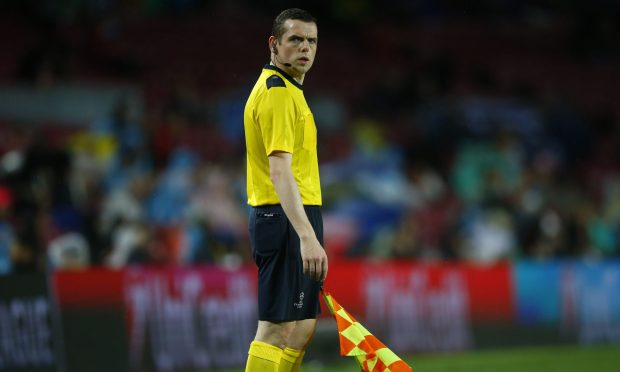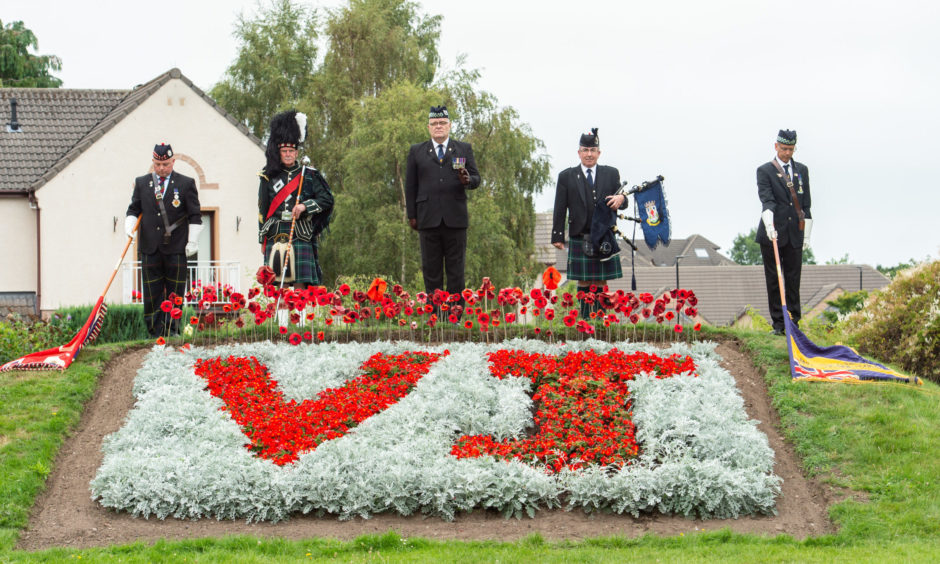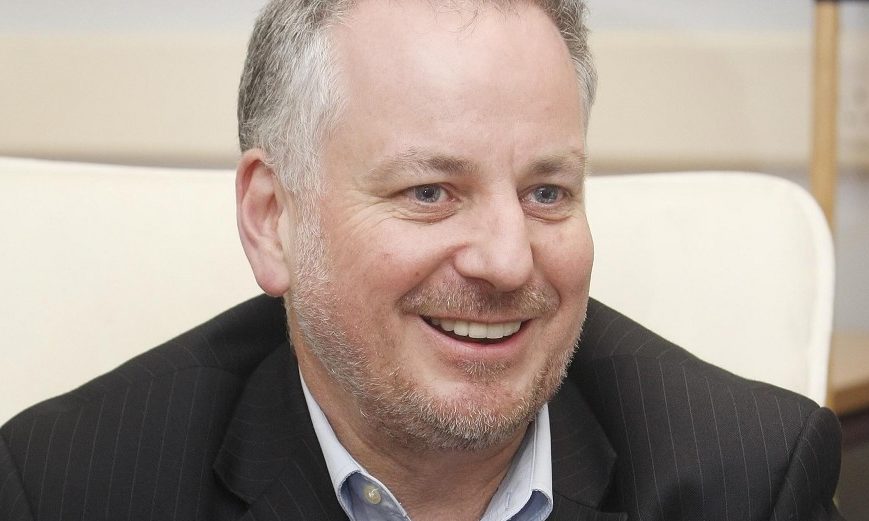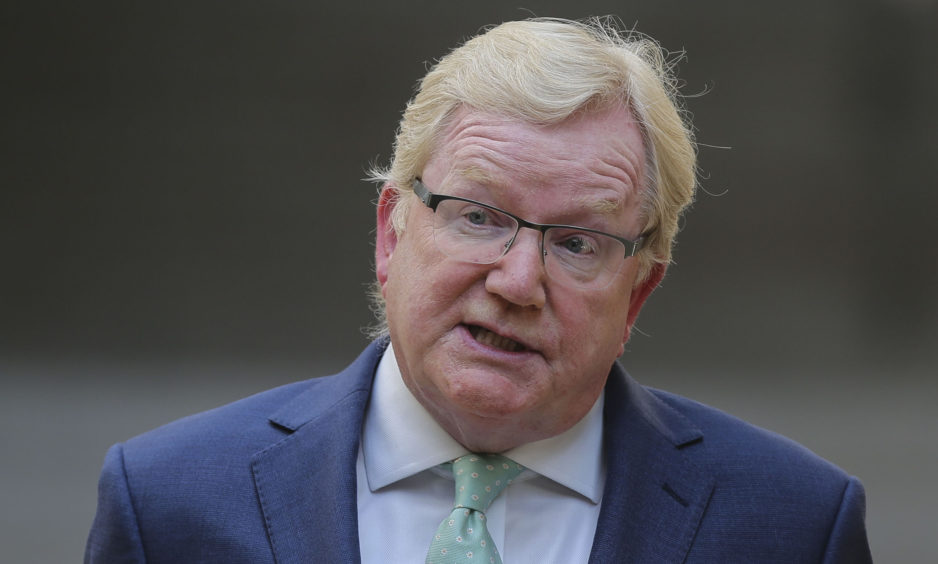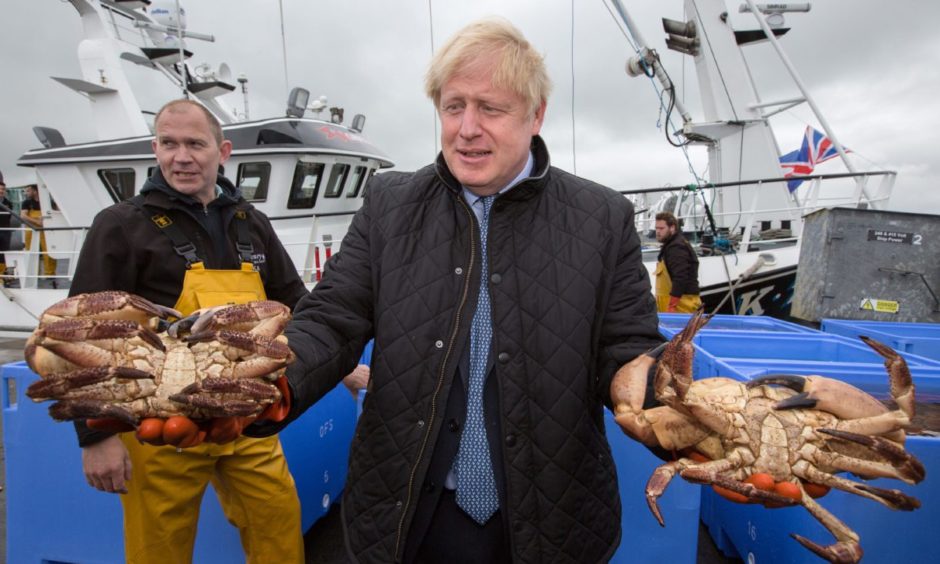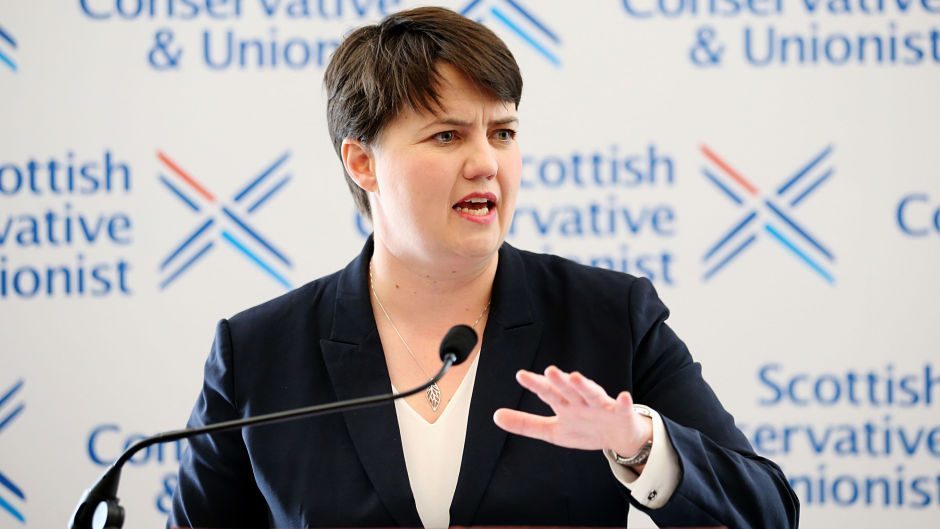The new leader of the Scottish Conservative Party, Douglas Ross, must have a good memory and sound decision-making skills that work well under pressure.
How else is he able to remember and apply the laws of football in front of partisan crowds when indulging in his high-profile second career as a leading assistant referee?
Unfortunately, those skills which are so important when dishing out yellow cards or flagging for offside, appeared to have temporarily deserted him at the weekend when it came to his political day job.
Mr Ross’s choice to be a linesman at the Kilmarnock v St Johnstone match rather than attend an event commemorating the 75th anniversary of VJ Day in his Moray constituency must surely rank as one of his dodgier decisions.
The Scottish Conservative leader had either failed to learn the lessons of political history or let his enthusiasm for the round ball game cloud his judgement.
Perhaps Mr Ross had forgotten the anger that erupted 16 years ago when it emerged former first minister Jack (now Lord) McConnell intended to skip the events marking the 60th anniversary of the D-Day landings so he could attend a Royal and Ancient Golf Club celebration dinner.
After a furious row, Mr McConnell ditched the R&A’s invitation and travelled to Normandy. Mr Ross has also seen the error of his ways and issued a heartfelt apology for his choice of activity on Saturday.
In the fortnight or so since Mr Ross become Scottish Conservative leader, he has made much of how his skills as a referee – making important judgements under pressure – are applicable to his new political job.
But this has been a less than auspicious start as he faces the stiff challenge of reviving the Scottish Conservatives ahead of next year’s incredibly important Scottish election.
The task he faces is certainly daunting. The SNP are riding high in the polls and support for independence appears to be at an all-time high.
The Tories, on the other hand, have been struggling. So much so that Mr Ross’s predecessor, Jackson Carlaw, suddenly resigned, apparently in recognition that he was not the person best placed to lead the party or defend Scotland’s place in the United Kingdom.
Within moments of Mr Jackson’s departure, he had been replaced by Mr Ross, the Moray MP, with Ruth Davidson by his side.
For the Conservatives, a huge amount hangs on the “joint ticket” of Mr Ross with Ms Davidson standing in for him at Holyrood and in the weekly joust with Nicola Sturgeon.
Mr Ross’s VJ Day misjudgement has not been the most promising start. And the new leadership has the problem of Boris Johnson’s unpopularity in Scotland to deal with.
But speaking to Conservative insiders, they detect a small glimmer of hope even with the SNP’s exalted position in the polls. Polls have suggested the Tories will take 29 Holyrood seats, two less than they currently hold. At first glance that scarcely seems encouraging. But when compared with the state of the party before the 2016 election the picture looks slightly different. Back then the polls were putting the number of Conservative seats in the teens. So the argument goes that the party is starting from a higher base.
While it is unlikely that Ms Davidson’s return will bring about some sort of instant revival, Mr Ross should find having an experienced and effective operator by his side helpful. She, however, will have to put up with constant SNP jibes about her move to the House of Lords after May’s election.
The coronavirus has succeeded in putting normal politics on hold and that has been a source of frustration for all opposition politicians as Nicola Sturgeon has dominated the airwaves with her response to the crisis.
But as normality slowly returns, the Conservative plan is to focus relentlessly on the SNP’s domestic record.
Here the Conservatives should find themselves in fertile territory given that it is the opposition’s role to scrutinise the government’s record.
Before coronavirus struck, the SNP had the look of a tired administration. The Finance Secretary Derek Mackay had resigned in the most unfortunate and embarrassing circumstances, having sent flirtatious texts to a teenage boy.
There was widespread anger over the high-profile problems that have plagued the flagship Queen Elizabeth University Hospital in Glasgow and the delays to the opening over Edinburgh’s new Sick Kids hospital.
A public inquiry has been launched into the projects after two people, including a child, who died at the Glasgow establishment were found to have an infection linked to pigeon droppings, while the cost over-runs and problems with ventilation in critical care facilities in the Edinburgh hospital have raised more questions about the Scottish Government’s stewardship of the NHS.
Meanwhile, there was anger about the Scottish Government’s failure to make enough progress on closing the education attainment gap long before Education Secretary John Swinney found himself embroiled in the coronavirus exams fiasco. It is these sorts of issues that the Tories will try to focus on as politics returns to normal.
Part of the challenge will be to return voters’ minds back to these pre-coronavirus issues, which, given their importance, deserve the utmost scrutiny. But this will have to be done in the long shadow cast by the coronavirus. There is little doubt that the “unprecedented” nature of the pandemic and the impact it has had on hospital waiting lists and children’s education will be used by the SNP to reset the domestic debate.
In that regard, the task in front of Mr Ross will be even more challenging than running the line at Rugby Park.
